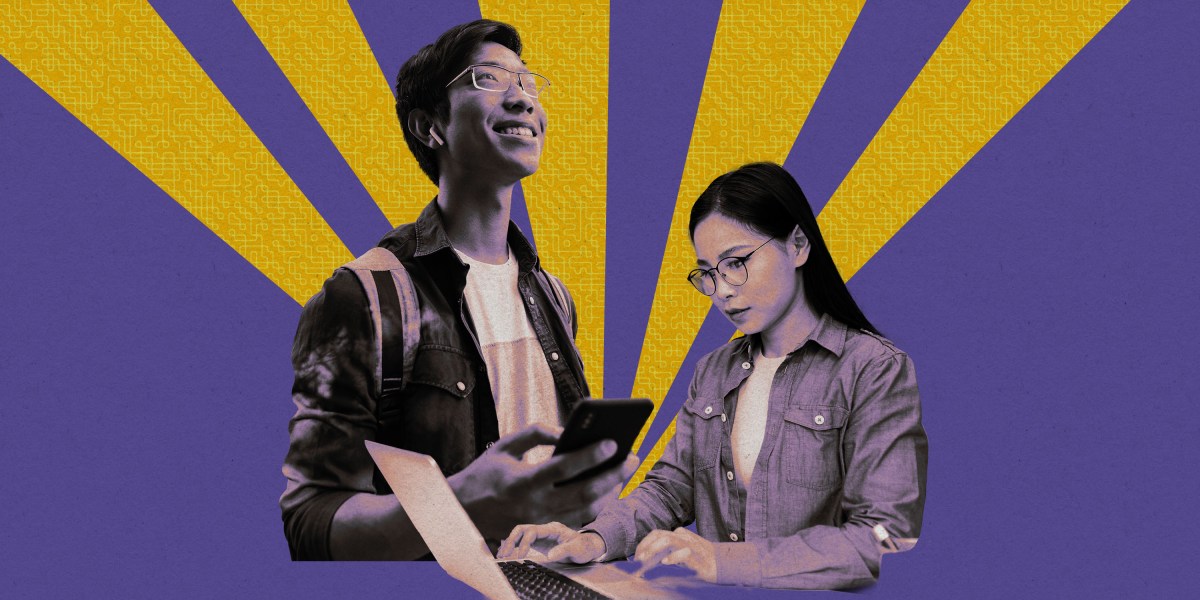Imagine a world where artificial intelligence is not just a tool but a skill that students are encouraged to master. In China, this vision is becoming a reality as universities across the nation are embracing AI in education. This forward-thinking approach stands in contrast to many Western institutions, where AI is often seen as a potential threat to traditional learning methods.
A New Era of Learning
Chinese universities are leading the charge in integrating AI into their educational frameworks. This shift is supported by national guidelines that emphasize the importance of AI literacy. The goal is to prepare students for a competitive job market where AI-related skills are increasingly valued. By fostering an environment where AI is seen as an ally rather than an adversary, these institutions are paving the way for a new era of learning.
Empowering Students
At the heart of this initiative is the belief that AI can empower students to take control of their learning journeys. With AI-guided feedback and support, learners can explore subjects at their own pace, tailoring their educational experiences to fit their unique needs and aspirations. This personalized approach not only enhances understanding but also cultivates a sense of ownership and responsibility in students.
"AI literacy is becoming crucial for students' success in today's competitive job market," said Professor Li Wei, an AI education advocate at Tsinghua University. "By integrating AI into our curriculum, we are equipping our students with the skills they need to thrive in the future."
Looking Ahead
As Chinese universities continue to innovate and adapt, they serve as a model for institutions worldwide. By embracing AI as a skill to be mastered, they are not only preparing students for the future but also redefining what it means to learn in the 21st century. This shift towards AI literacy is a testament to the power of education to transform lives and open doors to new opportunities.
Originally published at https://www.technologyreview.com/2025/07/28/1120747/chinese-universities-ai-use/
ResearchWize Editorial Insight
The article "Chinese Universities Embrace AI in Education" is a significant read for both students and researchers, as it highlights a transformative shift in educational paradigms that could influence global practices. For students, especially those preparing to enter a rapidly evolving job market, understanding AI not just as a tool but as a skill to master is crucial. This approach empowers them to become active participants in their learning journeys, fostering a sense of agency and adaptability that is essential in today's world.
For researchers, the article provides a lens into how educational systems can integrate cutting-edge technology to enhance learning outcomes. It invites exploration into the impacts of AI on pedagogy and curriculum development, offering a rich field of study on how these changes can be measured and optimized. The Chinese model serves as a case study for examining the balance between technology and traditional educational values, encouraging a dialogue on how best to prepare students for future challenges.
In classrooms, this shift towards AI literacy can inspire teachers to rethink their roles—not as mere transmitters of knowledge but as facilitators of a more personalized and engaging learning experience. It underscores the importance of inclusion, ensuring that all students, regardless of their starting point, have access to the tools and skills necessary to succeed. As educators, embracing such changes with an open mind and a compassionate approach can help bridge the gap between potential and achievement, making education a truly transformative force.
In the evolving landscape of education, artificial intelligence stands as a bridge to new possibilities. As we look ahead, the integration of AI into education can become a shared journey, where students and teachers collaborate to unlock potential. Imagine classrooms where AI acts like a gentle guide, helping students explore subjects with curiosity and confidence. This partnership can transform learning from a solitary endeavor into a communal exploration.
Inclusion will be at the heart of this transformation. AI can be a tool that adapts to diverse learning needs, ensuring every student has a voice and a path to success. By recognizing each learner's unique strengths and challenges, AI can foster an environment where everyone feels valued and supported. This inclusive approach can break down barriers, making education accessible to all.
The emotional side of schooling will also find new expression. AI can help educators understand and respond to the emotional well-being of their students, offering insights that nurture empathy and connection. In this way, technology becomes a companion in the classroom, not just a tool, helping to create a space where students feel safe to express themselves and grow.
As AI education evolves, the focus will remain on empowering students to take charge of their learning. By encouraging collaboration and emotional intelligence, we can prepare young minds not just to succeed in a competitive world but to contribute meaningfully to it. This vision of education is not just about mastering technology; it's about nurturing the whole person, creating a future where learning is a shared and enriching journey for all.
Originally reported by https://www.technologyreview.com/2025/07/28/1120747/chinese-universities-ai-use/.
Related Articles
- The Professors Are Using ChatGPT, and Some Students Aren’t Happy About It
- Navigating medical education in the era of generative AI
- Potential of ChatGPT in academic research: exploring innovative thinking skills
📌 Take the Next Step with ResearchWize
Want to supercharge your studying with AI? Install the ResearchWize browser extension today and unlock powerful tools for summaries, citations, and research organization.
Not sure yet? Learn more about how ResearchWize helps students succeed.

